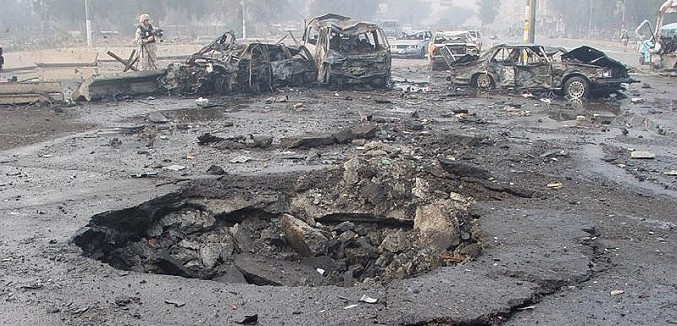Scores of people were killed in the latest wave of attacks across Iraq Tuesday, raising concerns that a full-blown sectarian war may break out in the country.
Iraq is weathering its deadliest outburst of violence since 2008, with more than 2,000 people killed since the start of April. The bloodshed appears to be largely the work of resurgent Sunni militants such as al-Qaida, feeding off Sunni discontent with the Shiite-led government.
Violence increased sharply in April and May, with frequent bombings in civilian areas raising concerns that a widespread sectarian conflict might once again break out in Iraq. The bloodshed accelerated after a deadly April 23 crackdown by security forces on a Sunni protest in the northern town of Hawija against the Shiite-led government.
Sunni and Shiite fighters appear to be trading tit-for-tat bombings and violence, and both factions have reached out for assistance from across the country’s border. Sunnis within the country have received assistance from Iraqi extremists and Al Qaeda elements fighting in Syria. On the Shiite side, Iran has long-established networks in the country, which top U.S. military officials have for several years warned pose the single gravest threat to Iraqi cohesion and stability. According to Maj. Gen. Jeffrey Buchanan in 2011:
Though the car bomb attacks that hit 13 cities in Iraq Monday bear the markings of Al Qaeda in Iraq, militias are the greater concern because of the support they “are getting on a daily basis from Iran,” said Maj. Gen. Jeffrey Buchanan, spokesman for US forces in Iraq.
The military has found caches of rockets supplied by Iran and “manufactured as recently as 2010,” he added.
[Photo: Jim Gordon / Wiki Commons]




